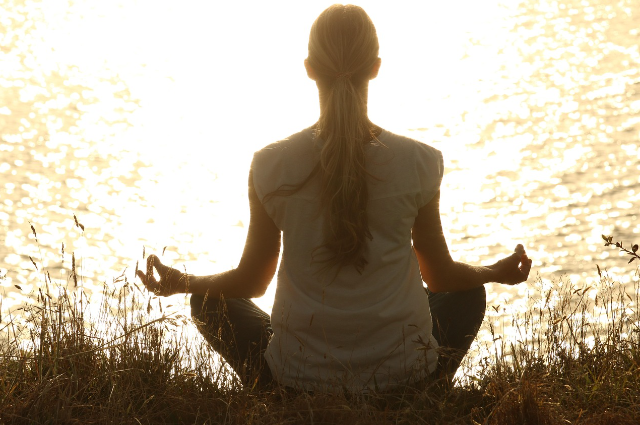
The recent news of Misha Agarwal committing suicide because she lost her social media followers, just two days before her 25th birthday, left me aghast.
And she is not the only one; several Instagram influencers promoting wellness and lifestyle find themselves burning out. In the words of Lee Tilghman, "The truth is, wellness is inaccessible. I was publicly shamed to the point where I considered suicide."
Lee Tilghman ("Lee From America") was once a top clean-living Instagrammer and brand. But her hyperactive lifestyle to keep up the appearance and be accepted by the followers led to orthorexia, mental health struggles, and eventual burnout.
How often do we look up to these influencers and applaud them for mastering the chaos? But do they have it together?
Are they facing burnout and mental health issues just like us?
Should social media and influencers serve as our guide or role models when making life choices and seeking wellness?
THE REEL LIFE IS NOT REAL
Self-care and wellness on social media are the most trending topics. Ideal morning routines, juice cleanses, gratitude journals, affirmations, and other such things are popping up on your feed. But are the people promoting wellness well cared for, or just upholding pretenses?
There are 68.7 million posts with #healthylifestyle and over 33 million with #wellness. Social media is now more than entertainment. People often seek health advice, lifestyle, and beauty hacks from various trending influencers.
Wellness Influencers are expected to model the wellness they promote and monetise it. But in this cat race, Mindfulness became content and healing, a hashtag.
When people who are supposed to help us heal or rediscover ourselves end up struggling with their wellness, it raises questions about what is real and what is not.
Many influencers have accepted that being a social media star comes at the price of their well-being. Anna Mathur, a psychotherapist-turned-influencer, candidly talks about her burnout, depression, and disordered eating. It reminds us that real life is far from perfect and needing help is normal. You don't need to have it all figured out.
THE PARADOX: THE PRICE OF PROMOTIONS
Jayde Powell, a prominent influencer and marketing strategist, has been vocal about her struggles with chronic migraines, screen addiction, online harassment, and anxiety. She uses her platform to
advocate for healthier digital habits and openly discuss influencers' challenges, including burnout, stress, and mental health issues.
Let's dive into why our influencers, who promote self-care, feel the brunt of the burnout.
- Algorithmic Anxiety: Social media is brimming with influencers. There is always something new trending, and hopping on the trend to stay on top of your followers' feed is a mammoth task. Your content has to be in sync with the algorithm to hold onto your followers.
Constant planning and FOMO can add to the anxiety. Your content has to be in sync with the algorithm, which constantly demands consistency. The constant posting to monetise and reward clashes with the slow, mindful pace wellness promotes.
A 2025 Medium commentary reports that 90% of full-time influencers experience burnout, often citing anxiety, creative fatigue, and feeling trapped in a relentless work-play loop.
- Digital Validation: Neuroscience research highlights that likes on social media act as reinforcement and light up the same reward centres in our brains as chocolate or money. Digital validation on social media is a loop; negative comments and the loss of followers can feel like personal failure.
Despite having 3.5 lakh followers, Misha Agarwala was battling depression and mental health issues. People close to Misha reveal that she let social media dictate her whole identity, and her fear of losing followers drove her to end her life.
- Pressure to be well: Wellness influencers promoting wellness must portray that they are living The Life, doing it all, eating clean, working out, being socially active, and doing well professionally. Even if they are not. Pretending and maintaining a façade when things, in reality, you are struggling will take a toll sooner or later.
- Performance, not practice: For most wellness influencers, promoting wellness is more about performance than practice, as they have built their careers around it and depend on its monetary payout. It's all about selling their programs, guides, and products via affiliate links and discount coupons—collaborations with brands that splash out big time for their content, followers, and engagements.
Wellness, health, lifestyle, and self-care are businesses to run for them, and every post, video, and reel is a marketing pitch.
- Blurred lines: content like 'A day in my life' and 'this is what I eat in a day to stay young' are among the most-watched reels. The pictures of every aspect of your day, your kids, family, and home, are laid out in the open for everyone to see, infringing upon privacy.
Creating and posting every aspect of your life and being evaluated and judged by strangers who feel entitled to know every little detail about you is not suitable for anyone's mental health. Creators are never off the hook and have no defined personal or professional lines.
Wellness and self-care routines, once personal practices, have become brands and can mirror the same toxic productivity they warn against.
THE CONSEQUENCE
Several influencers have had public breakdowns or have taken breaks from social media, affecting their credibility and earnings. Followers expect wellness creators to be serene, joyous, and "always together," leaving little space for human struggles.
Who knows how many influencers out there who are educating us to breathe, unplug, and slow down aren't able to do so themselves and are running on fumes?
We should foster a more open social media community that accepts room for error, healthier boundaries, and authentic content that reminds us we are all humans, not algorithms. The platforms and algorithms will then change to accommodate this shift, and Reels will feel a little more real.
